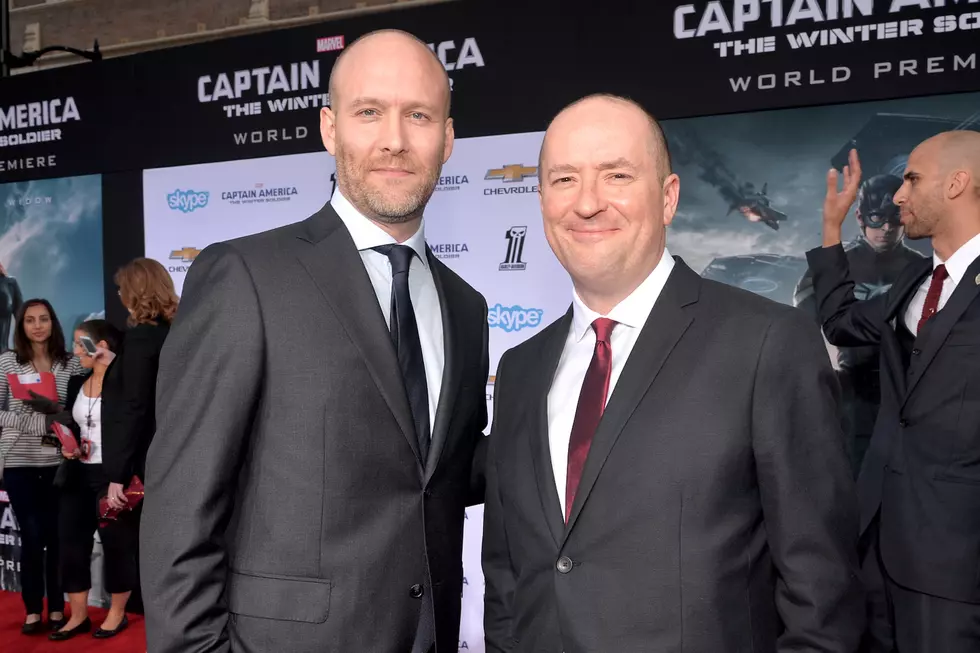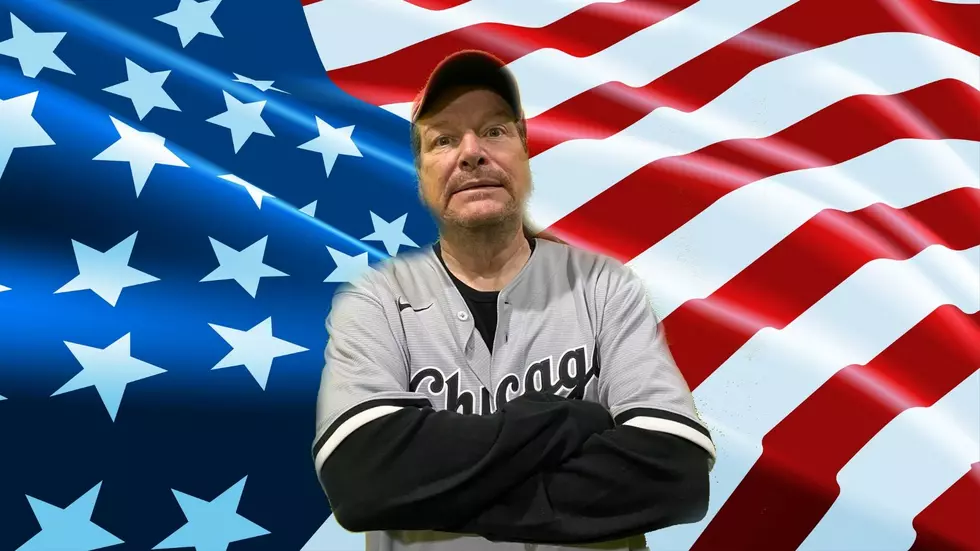
We Asked the Writers of ‘Avengers: Infinity War’ About the Biggest Marvel Plot Hole
Among the unsung heroes of the Marvel Cinematic Universe, two of the most unsung (least sung?) are Christopher Markus and Stephen McFeely. They’ve been with Marvel for 10 years — basically from the beginning of the MCU — starting with Captain America: The First Avenger. They went on to write or co-write both Captain America sequels and Thor: The Dark World, and they created the Agent Carter TV series, featuring the Peggy Carter character that had so smartly reinvented in Captain America: The First Avenger. Markus and McFeely have had their hands on more good Marvel stuff than just about anyone who isn’t named Kevin Feige.
Now Markus and McFeely have their biggest and toughest Marvel assignment yet: Avengers: Infinity War, the hugely anticipated sequel uniting the Avengers, the Guardians of the Galaxy, Spider-Man, Black Panther, and pretty much every Marvel hero in existence in a two-part battle with Thanos (Josh Brolin) over the Infinity Stones and the fate of the entire (Marvel Cinematic) Universe.
During our conversation about the film and its upcoming sequel (due in theaters next summer), we talked about just how much they had to write for these movies, which new characters they particularly enjoyed working with, and we addressed one of the elephants in the room: The big plot hole involving Thanos literally giving away an Infinity Stone back in the first Avengers.
How many drafts did you write?
Christopher Markus: Eventually you stop counting drafts and just do versions of scenes, but I would say we did about seven of each; seven of Avengers 3 and seven of Avengers 4.
Stephen McFeely: Yeah, that’s a good number.
How much of the writing process on a movie like this is dictated by someone within Marvel telling you “Hey, we’d love to have Spider-Man in every scene, but we’ve only got Tom Holland for 10 days,” or something to that effect?
SM: Ah, that’s a salient question. That comes up eventually. It is not where we start. And so if we go down a road and we say “This character is in every scene,” and they go “Yeah that’s gonna be tough,” we’ll adjust it. But we don’t start there. And certainly on this movie a lot of people had different time commitments.
CM: Sometimes you can actually shoot the scene without everybody in it. Put them in magically later. Other times that won’t fly and you have to reconceive.
SM: Right. It’s good they have masks.
[laughs] Who were some of your favorite characters to write on this movie that you hadn’t gotten to work on before?
SM: Thanos is the easiest one. He’s by far the scariest villain in the Marvel Universe. He’s not just a bad guy, he’s an amoral philosopher with a very specific view of how the universe ought to be working, and he’s the one with the will to make sure that it goes that way. And if life fails in service of that, so be it. He’s pretty interesting.
CM: I enjoy Wong.
Steve: [laughs]
From Dr. Strange. Why’s that?
CM: He’s a great actor. He’s very, very dry. You can give him pretty acerbic things and he’ll throw them away. I like to have those people available to undercut “the great heroes.”
You guys had a hand in writing all the Captain America movies and the second Thor movies. When you sat down to write this one, were there any decisions you had made previously that you retroactively was kicking yourselves over because they made your lives miserable this time around?
SM: I guess I can’t tell you what they are, but yes there’s a couple things that made us go “Ah, it would have been more convenient if that had not occurred, given what’s coming.” But you can understand why I can’t tell you what it is. So there’s a couple of things, not much. We enjoy the puzzle of it all. By that logic, we could get angry at every filmmaker that came before and why couldn’t you make our lives easier, but that’s not what the process was about.
You mention you like having Wong handy because he can undercut some of the bigger more serious moments. Are there any other tricks of the trade or rules you found useful in writing something of this magnitude?
SM: One of the things we decided on early — we’re looking at the poster right now, I think there are 23 people on this poster — you don’t want scene after scene to be 23 people in a room moving from plot point to plot point. You’re gonna have Oscar winners who don’t say anything in those scenes, and that’s tough.
So we knew early on that we wanted smaller groups to go through this story, and attack this story differently, and then weave those smaller groups in and out of each other, to make every scene a valuable scenes for these characters, and not just a courtroom scene with Don Cheadle in the background not saying anything. You don’t want that.
I’d seen them all before, but I’ve been rewatching all the MCU movies before Infinity War.
CM: Whoa.
SM: Good for you.
Oh yeah, my wife has been really thrilled with how I’ve been spending my time for the last two months.
SM: [laughs]
When you look at all these movies together, you begin to see recurring themes. And one that I noticed coming up over and over, including in some of your movies, is the idea of fathers and sons — sometimes biological ones, sometimes adopted ones or father figures — and the children having to decide whether to follow in their parents’ footsteps. Is that something we’ll see continued in Avengers: Infinity War?
CM: I don’t know about sons, but fathers and daughters.
SM: I think a little bit of that is maybe on us; a lot of male screenwriters. I wonder if you had more female screenwriters they wouldn’t have explored that quite as much. But the responsibilities of the next generation, that is something we’ll keep playing with.
CM: Also are you going to break free of the path that’s been laid out for you or are you going to … are you a slave to your destiny or can you make your own?
SM: Yeah, that’s a big one.
With all these characters and stories and franchises, did you guys have a goal in terms of the writing — beyond, obviously, making an entertaining movie?
CM: We knew we wanted Thanos to be as three-dimensional and as much of a protagonist as he could be. Because he’s got to anchor two movies and he is causing a ripple effect throughout the entire Marvel Cinematic Universe. If he is just a cardboard villain, everything is going to feel lame. So that was job #1 — to get him as fully realized and “human” as we could get him to be.
Are you still writing things for Avengers 4?
SM: Yes. We always knew that schedule wise we were going to go back and pick stuff up later this year. So we’re slowly starting to figure out what we need. But it’s early days, we just finished this one. But there’s more to come, for us.
You guys have been around the Marvel Cinematic Universe for a long time; I would assume at least a year or two before the first Captain America in 2011.
SM: 2008!
CM: Ten years.
Ten years. So at what point did you learn “We’re building to Infinity War.” How much of it was in place back then or at what point did it get put into place?
CM: The Marvel universe, to its credit — and I think one of the reasons it works so well is it’s not set in stone. Kevin and as a consequence the studio work from movie to movie, and spend it all on the movie they’re working on. At no point are you just laying the building blocks for the payoff later. I think that’s where some other attempts at building a universe has failed is that the eye is too much on the end goal than the steps along the way.
Frankly, I only heard people talking about Infinity War right before we got the job.
SM: Kevin [Feige] announced it in 2014.
Finally, as someone who has just rewatched all these movies I need an honest answer to this question: Did Marvel always plan on having the Mind Stone inside Loki’s sceptre?
SM: Boy, I guess I can only answer for me, as the guy who then had to deal with why Thanos would give away an Infinity Stone.
[laughs] Right!
SM: My assumption is that perhaps that wasn’t up on the board early, but I’m not the guy to ask. Kevin or Joss is the guy to ask.
CM: I mean, the scepter did control minds.
SM: It did! So I don’t know.
That’s true, it did control minds. So that was a question you guys felt you had to answer with these movies? Because Thanos giving away away an Infinity Stone always bugged me.
CM: Certainly we had to be aware of it.
SM: Yeah.
Gallery - The Best Marvel Posters Ever:
More From 97.7 KCRR










